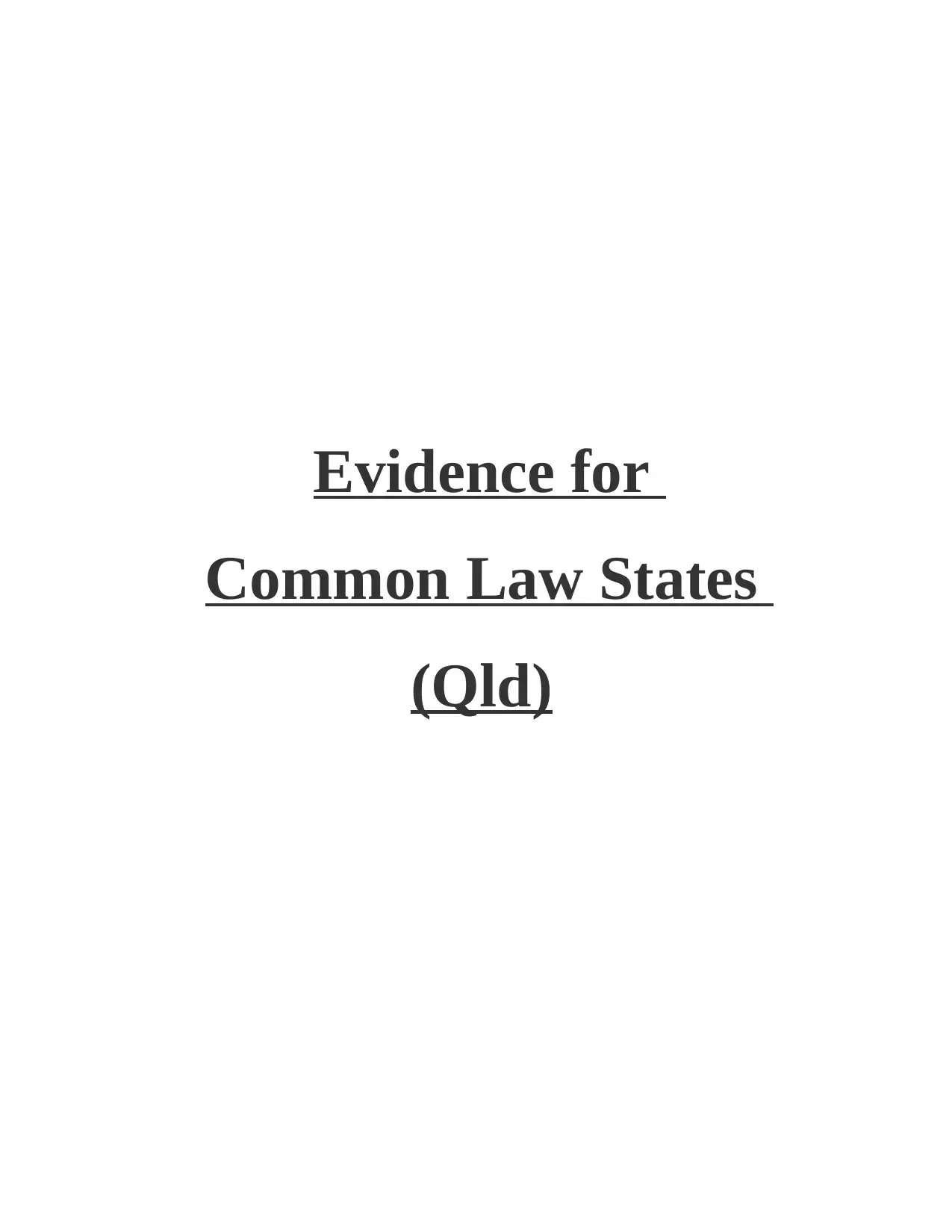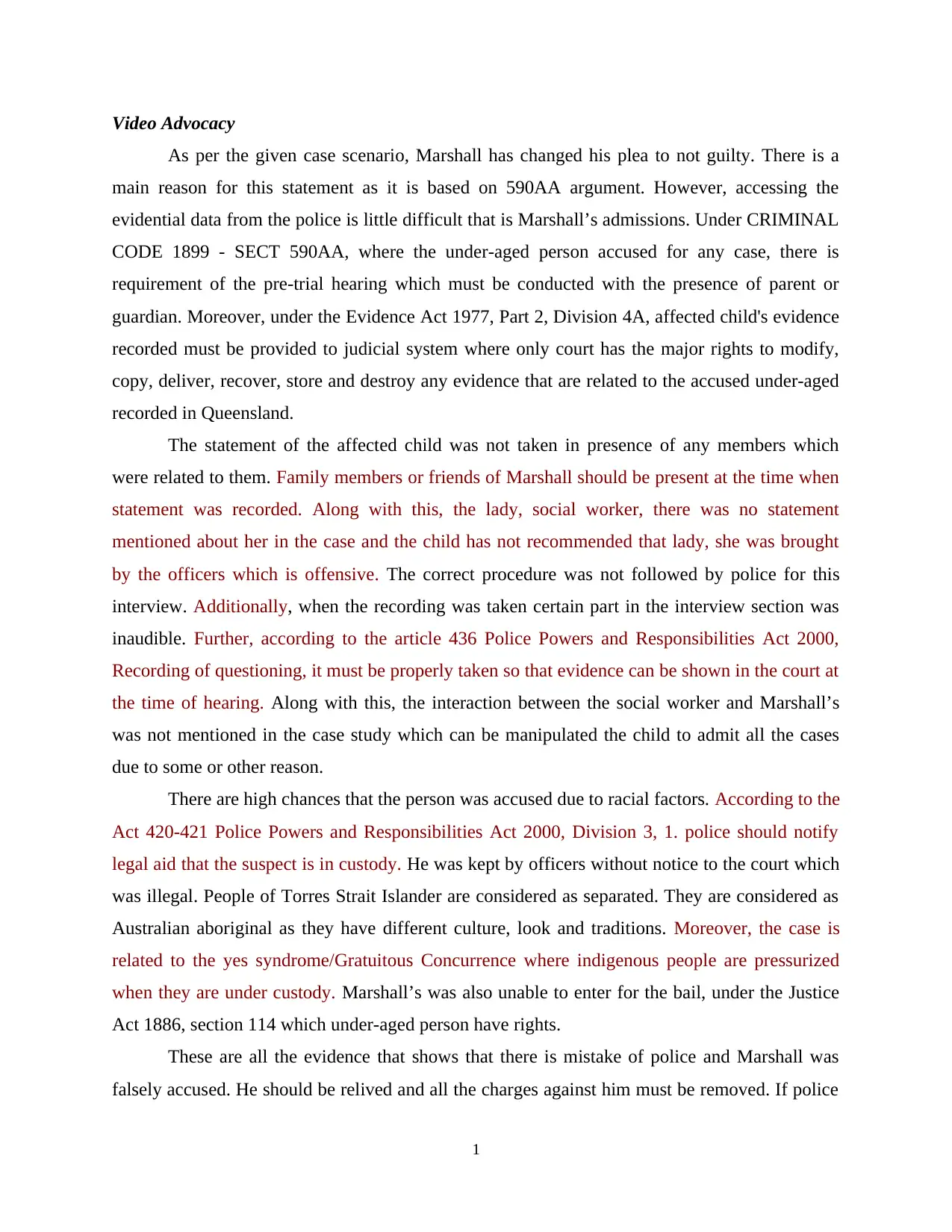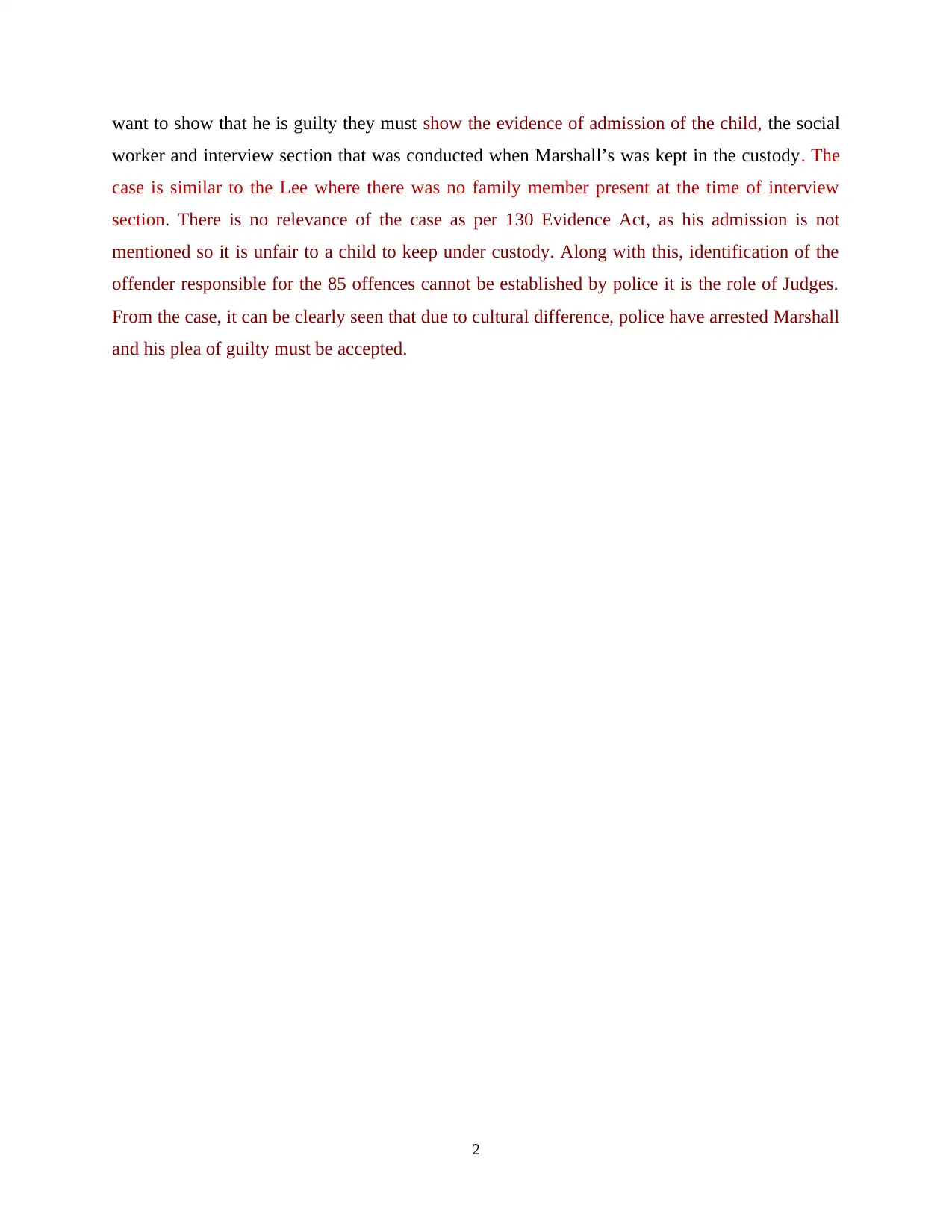Case Study: Evidence Law, Criminal Procedure, and Indigenous Rights
VerifiedAdded on 2020/06/05
|4
|649
|46
Case Study
AI Summary
This case study analyzes a Queensland evidence law case involving a juvenile defendant, focusing on potential violations of criminal procedure and the rights of the accused. The analysis highlights concerns regarding the absence of a parent or guardian during the initial interview, the admissibility of the child's statement under the Evidence Act 1977, and the impact of police actions, including the failure to notify legal aid and potential issues related to the defendant's indigenous background. The study examines the application of relevant legislation, such as the Criminal Code 1899, the Police Powers and Responsibilities Act 2000, and the Justice Act 1886, to argue for the defendant's innocence and the dismissal of charges. The case also raises questions about the identification of the offender, the impact of cultural differences, and the application of the 'yes syndrome' in the context of police custody. The assignment emphasizes the importance of proper procedure and the protection of the rights of the accused, particularly vulnerable individuals.
1 out of 4





![University Law Case Study: R vs. Smith [2003] QCA 76](/_next/image/?url=https%3A%2F%2Fdesklib.com%2Fmedia%2Fimages%2Fci%2F394dee3982ef454f9e4a28ed0b06d045.jpg&w=256&q=75)





![[object Object]](/_next/static/media/star-bottom.7253800d.svg)